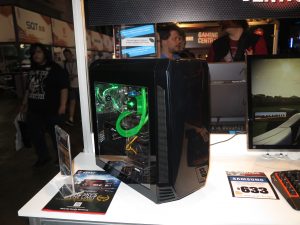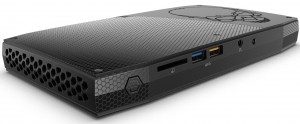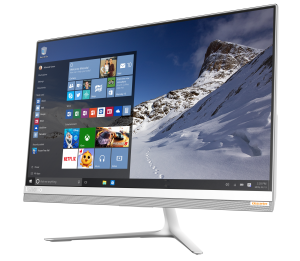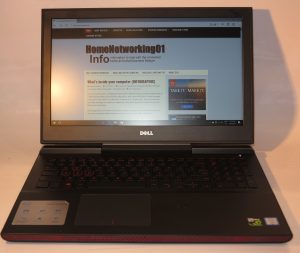Thanks to the COVID-19 plague, we are being encouraged if not required by law to stay at home to limit the spread of this disease.
This has led to us using regular desktop and laptop computers that run Windows, MacOS or desktop Linux at home more frequently for work, education, communications and pleasure. Think of those many Zoom or Skype videoconferences you have been making very lately. This may even cause some of us to purchase a new desktop or laptop computer or upgrade an existing one that is long in the tooth.
The question that will come about more frequently in this era is whether we should buy desktop computers or laptop computers. The desktop computers are appearing in newer and different form factors like “all-in-one” computers where the computing power is part of the display; or three-piece systems that now use a low-profile system unit like the Intel “NUC” boxes. This is while the highly-portable laptop computers appear in the traditional “clamshell” form or a 2-in-1 convertible that folds over to become a tablet.
There is also the fact that high-performance computers like gaming rigs or workstations are appearing in low-profile or “all-in-one” desktop form, or in laptop form. This is so you can think of having higher performance computing in an aesthetically-pleasing or portable form factor.
As far as a regular computer’s durability and longevity is concerned, it is becoming more plausible for these systems to last for many years compared to a smartphone or mobile-platform tablet. This is furthered by some people gaining more mileage from these computers by doing things like “upsizing” their computer’s RAM memory or storage to suit newer expectations. Or they end up using external or portable USB hard disks and SSDs or network-attached storage systems as a data-offload solution.
But the question that can come about is whether a desktop or a laptop is a more relevant computer purchase at this time.
It is more so as we see schools of thought develop concerning the purchase of portable computing technology like laptop computers, smartphones and tablets. Here, some of these schools of thought may downplay the need to invest heavily in such technology because it is perceived as “something to impress others with” when out and about in a similar vein to cars, bikes or fashion. This is with us spending more time cocooned within our homes thanks to this virus therefore driving a preference for us to lead a simple contemplative homespun life.
Desktop Computers
A desktop computer may be seen as being more relevant in the short term due to us not moving around. It may be more real where there is the expectation to use only one particular workspace for your computing activities and may be augmented by the fact that you use other complementary devices like mobile-platform tablets or gaming consoles for different activities away from the workspace.
Some users who chase high performance at all costs may simply state that a desktop computer, preferably the traditional “tower-style” unit, is the way to go. It is due to a desktop form-factor offering increased performance at a cheaper cost or being easily upgradeable or customisable. This would be preferred by the core gamers who value their custom-built gaming rigs. As well, those of us who are willing to throw down money on the latest CPU and graphics-infrastructure silicon as soon as Intel, AMD or NVIDIA release it would go for the traditional easy-to-upgrade desktop computer.
Laptop and Notebook Computers
Or a laptop or notebook computer, including a 2-in-1 convertible, can be about a long-term view of us coming out of the crisis and being able to get out and about. Here it may be about travelling again or working away from home whether that be your workplace’s office or a “secondary office” that is your favourite cafe.
In the short term, it can also be about the idea of using a highly-portable computer that can be taken around the house or stored away quickly when not in use. This can be driven by seasonal wishes like wanting to use your computer by the fire during winter or outside on the balcony or in the garden during summer.
Let’s not forget that a small home may be about not having a dedicated desk for your workspace and you have to use a dining table or coffee table for that purpose. Similarly you may use a desk types that can be closed up when not in use like a roll-top or slant-top desk or has significant storage space and you could store your laptop computer there.
Or you could take that laptop in to a lounge area to have that casual videoconference between family and friends using something like Zoom or Skype, perhaps hooking it up to the large TV for that purpose.
The transportability issue weighs more in the laptop’s favour because you carrywith the screen, keyboard and pointing device. one piece of equipment that is essentially your useable computer system
A recent trend that has affected laptop-computer use is to create a primary workspace that is equipped with a large display, a full-size keyboard and mouse along with other peripherals. These would be connected to your laptop whether directly or through a USB-connected dock (expansion module). You may follow this path when you want to work in a particular primary location but be flexible to move around for your regular-computing needs.
Conclusion
When it comes to choosing that next regular computer during this time, it is important to think of what form-factor really suits your needs both in the short term and the long term. This includes whether you see the possibility of frequently evolving your computer system to suit newer needs or whether you value portability or affordable performance.







